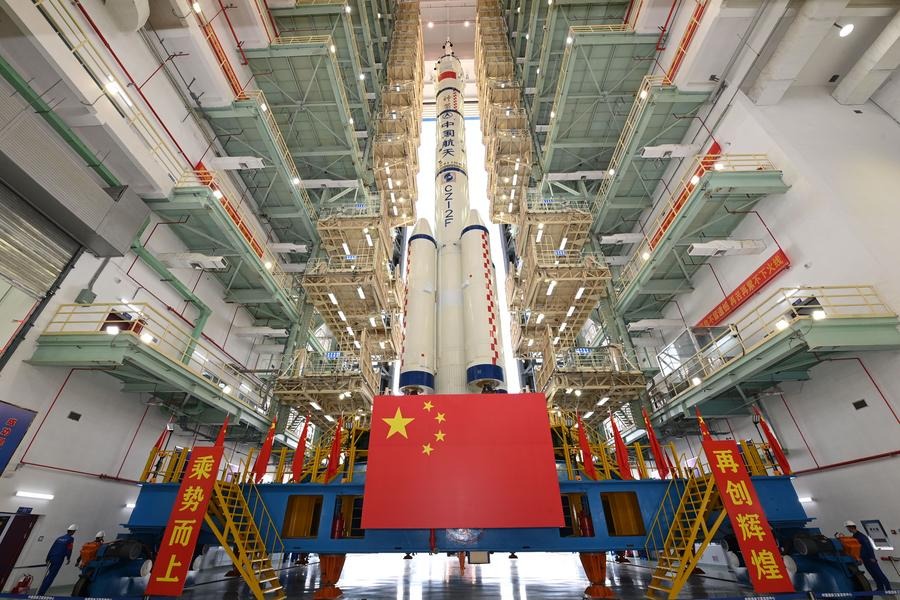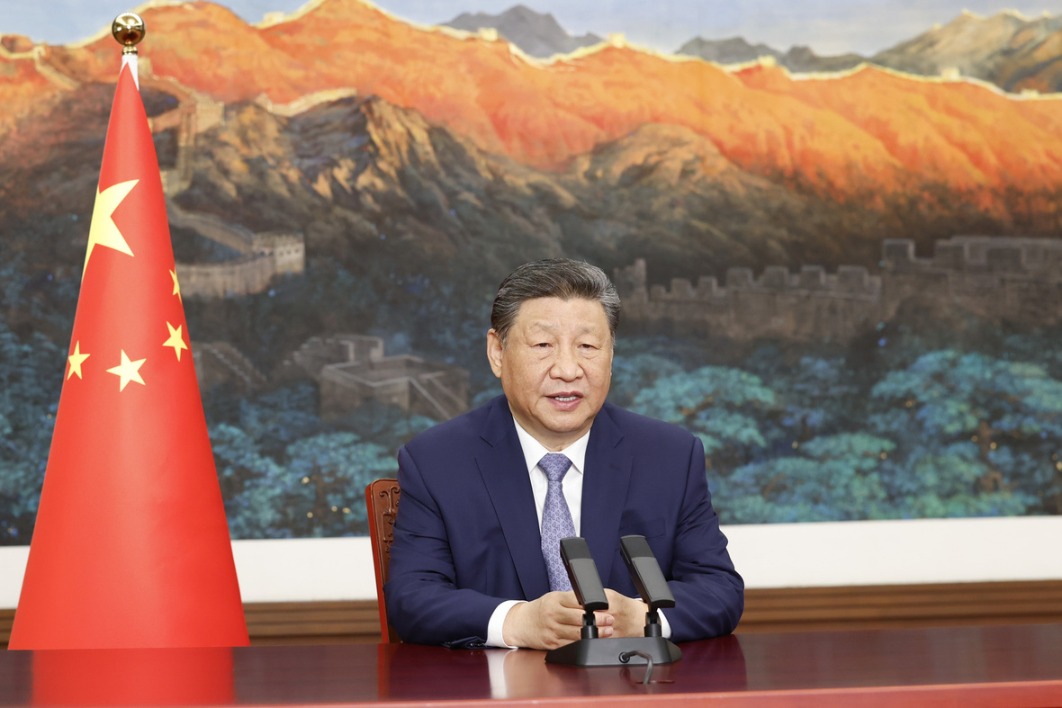Palestinian factions sign declaration in Beijing on bolstering unity
By Zhou Jin | China Daily | Updated: 2024-07-24 07:08

Representatives of Palestinian factions signed on Tuesday in Beijing a declaration pledging to end division and strengthen unity, which officials and observers said marks a key step in promoting reconciliation within Palestine and creating conditions for ending the Gaza conflict.
The declaration was signed after three days of reconciliation talks among 14 factions, including the two largest Palestinian factions, Hamas and Fatah.
It is the first gathering of the 14 Palestinian groups in Beijing, which China said provides hope for the Palestinian people in the abyss of misery. Representatives of Fatah and Hamas had held a dialogue in April in Beijing on promoting intra-Palestinian reconciliation.
The talks, which were organized and coordinated by China, also highlighted the country's role as a trustworthy peace broker, analysts said.
The declaration proposes hosting an international conference with broad participation and full authority. It also calls for achieving comprehensive national unity, which would include all Palestinian factions within the framework of the Palestine Liberation Organization, and establishing an independent Palestinian state with Jerusalem as its capital.
Foreign Minister Wang Yi said on Tuesday at the talks' closing ceremony that the most important consensus reached in the talks was for the reconciliation and unity of the 14 factions, with the core outcome being that the Palestine Liberation Organization is the sole legitimate representative of all Palestinian people.
Wang said that a highlight of the talks was an agreement on post-Gaza conflict governance and the establishment of a provisional national reconciliation government. He added that the talks voiced a strong call for realizing the independent statehood of Palestine in accordance with relevant United Nations resolutions.
Calls for internal reconciliation have been growing since the outbreak of the latest Palestinian-Israeli conflict in October, a prolonged conflict that has brought chaos and disaster to the Middle East.
Calling the Palestinian issue the core issue of the Middle East, Wang said that China has no selfish interests in the issue and remains a staunch advocate of justice and fairness.
Wang called for a comprehensive, lasting and sustainable cease-fire to ensure access to and implementation of humanitarian assistance, and emphasized upholding the principle of "Palestinians governing Palestine "in Gaza's postwar reconstruction.
He also stressed the importance of full membership for Palestine at the UN and the implementation of the two-state solution.
Mahmoud al-Aloul, deputy chief of Fatah, and Mousa Abu Marzouk, who represented the Hamas delegation, both expressed appreciation to China for supporting and helping Palestine, as well as for the country's efforts to uphold justice for Palestine in the international community.
Liu Zhongmin, a professor of Middle East studies at Shanghai International Studies University, said that the talks and the ensuing declaration play a crucial role in forming a unified voice and stance within Palestine, which is an essential step toward the settlement of the Palestinian issue and the realization of peace and stability in the Middle East.
The complexity of the Palestinian issue has long been reflected not only in the conflict with Israel, but also in internal divisions, particularly the long-standing conflict between Hamas and Fatah, Liu said.
The internal division has hindered the implementation of the two-state solution and the progress of peace talks between Palestine and Israel, he said, adding that the latest reconciliation talks are conducive to creating conditions for the resumption of Palestine-Israel negotiations.
More talks and specific arrangements are required to consolidate consensus and resolve internal differences in Palestine, Liu said.
The fair and just stance of China in its Middle East policy, along with its traditional friendships with various parties, enabled Beijing to act as a mediator, he added.
Yu Guoqing, a researcher at the Chinese Academy of Social Sciences' Institute of West-Asian and African Studies, said that promoting reconciliation among Palestinian factions is another significant endeavor by China to advance peace and stability in the Middle East, following Beijing's successful diplomatic mediation for the reconciliation between Saudi Arabia and Iran last year.
Despite the ongoing conflict in Gaza, China managed to gather representatives from 14 Palestinian factions from different countries and regions to Beijing for talks, which shows the country's responsibility as a major country, he said.
























